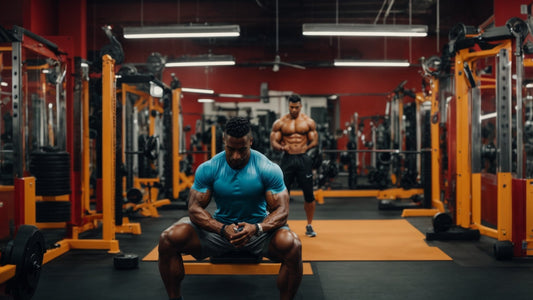What Are Wrist Curls?
Wrist curls are isolation exercises targeting forearm flexors, crucial for grip strength and wrist stability. Often used by athletes, climbers, and those rehabilitating wrist injuries.
How to Perform Wrist Curls Correctly
Step-by-Step Guide
- Sit on bench with forearms resting on thighs
- Hold dumbbell/barbell with underhand grip (palms up)
- Lower weight until fingers nearly open fully
- Curl wrists upward while squeezing forearms
- Pause at top position for 1 second
- Lower slowly through full range of motion
Pro Tip: Keep elbows stationary throughout movement
Top 4 Wrist Curl Benefits
- Develops forearm muscle mass (flexor carpi radialis/ulnaris)
- Improves grip strength for deadlifts and pull-ups
- Enhances wrist stability for sports like tennis/golf
- Helps prevent repetitive strain injuries
Common Wrist Curl Mistakes (With Fixes)
Mistake #1: Using Excessive Momentum
Fix: Use 3-second eccentric (lowering) phase
Mistake #2: Limited Range of Motion
Fix: Lower weight until fingers almost release bar
Mistake #3: Elbow Movement
Fix: Anchor elbows firmly against thighs
Equipment Variations
- Barbell Wrist Curls: Allows heavier loading
- Dumbbell Wrist Curls: Enables unilateral training
- Reverse Wrist Curls: Targets extensors (palms down)
Programming Recommendations
- Beginners: 2 sets of 12-15 reps (2x/week)
- Intermediate: 3 sets of 8-12 reps (3x/week)
- Advanced: 4 sets of 6-8 reps with pause reps
Journal of Strength and Conditioning Research shows 60-second rest periods optimize forearm recovery between sets.
Wrist Curls FAQs
Are wrist curls bad for your wrists?
When performed correctly with proper load management, wrist curls strengthen joints. Avoid sharp pain during movement.
How heavy should wrist curls be?
Start with 5-10 lbs (2-4.5kg) focusing on form. Advanced lifters typically use 20-40 lbs (9-18kg).
Wrist curls vs reverse curls?
Wrist curls target forearm flexors (palm side), reverse curls work extensors (back of forearm). Do both for balanced development.
Conclusion
Wrist curls are essential for complete forearm development when performed with strict form. Focus on full range of motion and controlled tempo rather than heavy weights. Pair with reverse variations and grip work for optimal results.







